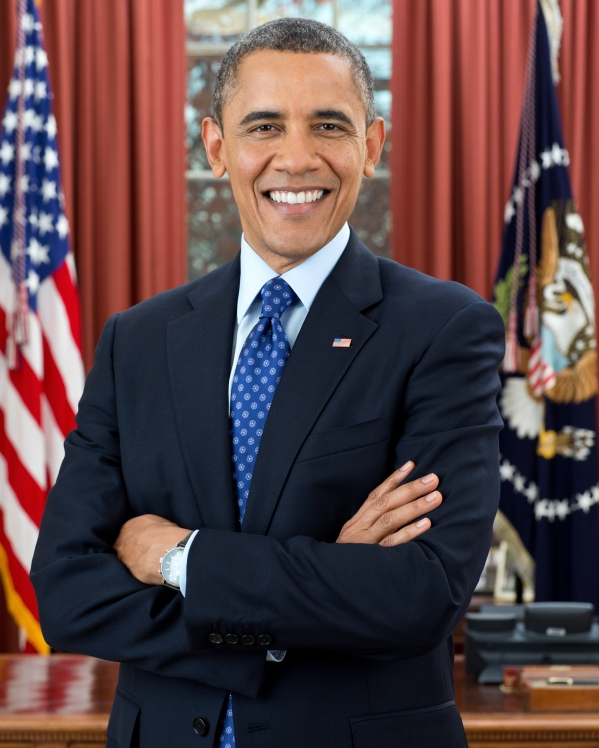Obama Proposes Strong Net Neutrality Rules; CTIA, TWC, And FCC Respond

Today, President Obama has come out in favor of strong net neutrality rules, which could include even Title II reclassification for the ISPs and carriers. Obama proposed four main principles for strong net neutrality rules.
No blocking -- The ISPs should not block any content with the caveat that the content must not be illegal. It's unclear if this could be used as a loophole in the future to get ISPs to block certain content such as torrents, or if the wording refers to content that judges say needs to be blocked (in which case that should probably be specified into the rules).
No throttling -- The ISPs will not be allowed to slow down any type of content or even speed up others. This should block the "fast lane" business model that ISPs intended to create after Verizon won its lawsuit against the FCC earlier this year.
Increased transparency -- Here Obama seems to be asking the FCC to increase transparency between the deals ISPs make with other service providers, even for last-mile connections.
No paid prioritization -- Here Obama is making it very clear that content providers shouldn't have to pay for prioritization and is calling on an explicit ban on any such restrictions.
Obama still doesn't specifically call for Title II rules to be adopted for Internet ISPs, leaving it to the FCC to decide if the four principles above can be implemented without Title II reclassification.
The CTIA Wireless Association and Time Warner Cable have already responded to Obama's proposals, and as expected, they do not like them at all:
Get Tom's Hardware's best news and in-depth reviews, straight to your inbox.
"CTIA and its members are committed to delivering an open mobile Internet, but applying last century's public utility regulation to the dynamic mobile broadband ecosystem puts at risk the investment and innovation which characterizes America's world-leading $196 billion wireless industry. The facts are clear that, under the current mobile-specific regulatory framework, the U.S. wireless industry plays a vital role in the nation's economy, employing more than 3.8 million Americans, driving more than $113.4 billion in capital investment, leading the world in LTE network deployment and providing a platform for innovation for U.S. consumers and businesses. Imposing antiquated common carrier regulation, or Title II, on the vibrant mobile wireless ecosystem would be a gross overreaction that would ignore the bipartisan views of members of Congress and the FCC, would impose inappropriate regulation on a dynamic industry and would threaten mobile provider's ability to invest and innovate, all to the detriment of consumers. CTIA strongly opposes such an approach."
Time Warner Cable Chairman and CEO Rob Marcus said, “Time Warner Cable remains committed to an open Internet, but we disagree with the President’s statement that an open Internet can only be achieved by reclassifying broadband as a public utility. Regulating broadband service under Title II, as the President proposes, will create unnecessary uncertainty, lead to years of litigation and threaten the continued growth and development of the Internet. The FCC has sufficient tools without reclassifying broadband to protect the openness of the Internet, while at the same time encouraging continued investment and innovation in the Internet ecosystem."
It's not clear yet whether Title II would indeed be necessary to force ISPs to provide better services to consumers, or that it would even work. Ideally, what we want in a market – any market – is high competition, which forces the market players to improve services and lower costs. In the U.S. that seems quite hard to achieve right now, when some states and cities even ban local competitors to the large incumbents. Given this context, Obama's proposals start to sound quite good.
The FCC Chairman, Tom Wheeler, also replied to Obama's proposals:
“The more deeply we examined the issues around the various legal options, the more it has become plain that there is more work to do. The reclassification and hybrid approaches before us raise substantive legal questions. We found we would need more time to examine these to ensure that whatever approach is taken, it can withstand any legal challenges it may face. For instance, whether in the context of a hybrid or reclassification approach, Title II brings with it policy issues that run the gamut from privacy to universal service to the ability of federal agencies to protect consumers, as well as legal issues ranging from the ability of Title II to cover mobile services to the concept of applying forbearance on services under Title II. “
It seems the FCC Chairman is quite concerned that even if the agency adopts strong net neutrality rules, the ISPs and carriers might sue and try to overturn those rules. In fact, Verizon has already threatened recently that if the hybrid net neutrality is adopted, it will sue the agency. The FCC will need to tread carefully here to make sure it adopts strong net neutrality rules under which competition could still thrive, and at the same time it doesn't leave much room for the ISPs to sue the agency over those rules.
Follow us @tomshardware, on Facebook and on Google+.

